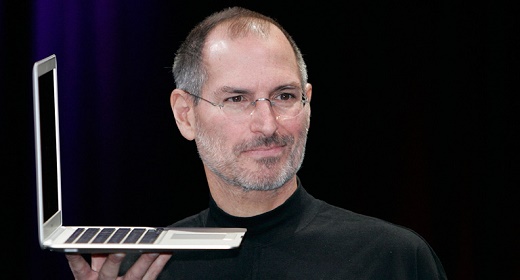by Jamil Zaki: How social media can rebuild our empathy—and why it must…
In the run-up to the 1964 World’s Fair, the great science-fiction writer Isaac Asimov was asked what that same event might look like 50 years later. He guessed that by 2014, we’d be in the constant company of “electroluminescent panels”—used for video chat, navigation and, more deeply, “to withdraw from nature in order to create an environment that will suit [us] better.”
Asimov’s future is our present. This worries many people, who think technology has left us dumber, sadder and meaner than we were before. Empathy—people’s ability to share and understand one another’s emotions—has declined sharply in the 21st century. If it dies out, technology will probably be charged with the murder. The clues are all there: People in countries with a greater Internet penetrance report lower empathy. Simply leaving a phone between two strangers as they talk lessens their resulting trust. The prosecution’s case writes itself: while apparently serving us, technology quietly poisoned the connections that keep us human.
Yet technology, and the Internet in particular, are not inherently antisocial. They can sap our empathy, but used differently, they could become a world-sized magnifying glass for our better angels. Many corners of the Internet already allow people to broaden their empathy and share collective goodwill. Researchers are pinpointing the ingredients of positive technology. If they become the norm, the future of life online will be kinder than its past. Internet platforms must heed this evidence, and their users must demand them to do so.
People’s ability to connect is the glue that holds our culture together. By thinning out our interactions and splintering our media landscape, the Internet has taken away the common ground we need to understand one another. Each of us is becoming more confident about our own world just as it drifts farther from the worlds of others. Empathy requires us to understand that even people who disagree with us have a lived experience as deep as our own. But in the fractured landscape of social media, we have little choice but to see the other side as obtuse, dishonest or both. Unless we reverse this trend and revive empathy, we have little chance of mending the tears in our social fabric.
Technology’s socially depleting effects are not coincidental; they reflect how platforms such as Facebook and Twitter are designed—and such platforms are, in turn, shaped by financial incentives. These sites satisfy shareholders not by making users healthy or happy but by keeping them online. This imperative favors extremism, vanity, fear—whatever grabs us and holds on. About 70 percent of YouTube views now come from the site’s recommendations, which are optimized to generate clicks. The result is a massive flow of eyeballs to conspiracy theories, bigotry, and aggression. This is what former Google ethicist Tristan Harris calls “extractive” technology: it takes advantage of our frailties and gets more effective at harming us as it grows more sophisticated.
Life online changes how we see others and how we are seen. Sometimes we’re not seen at all—our face and name is replaced by an avatar and an anonymous character string. Anonymity can be vital—for instance, by allowing people to safely organize protests in totalitarian nations. But it also cuts the brake lines on social interactions, encouraging people to try cruelty on like a mask, knowing it won’t cost them. Cyberbullying follows people into their homes and beds and leaves its victims more suicidal than those of traditional bullying.
When we are seen online, the Internet’s token economy can pervert how we present ourselves. In a 2017 study, psychologist William Brady and his colleagues analyzed more than 500,000 tweets to examine what makes them go viral. They found that the more “moral emotion”—such as outrage—a post contained, the more it was retweeted, especially within the original poster’s ideological circles. Retweets are tiny, addictive affirmations, which reinforce outrage. After being rewarded with attention, people responded by making their later tweets even more aggrieved than before. Twitter not only reflects an angry world; it helps create one.
Social media makes us less social when it replaces rich, analog hangouts with strings of text and curated images. In a 2017 set of studies, Juliana Schroeder of the University of California, Berkeley, and her colleagues taped individuals as they described their opinion on polarizing political issues. A separate set of “evaluators” either listened to those recordings or read their transcripts. Evaluators were more likely to dehumanize speakers when their opinions were reduced to text, especially when the evaluators disagreed with them. Thinned-out interactions made empathy harder to access.
Diagnosing technology’s damaging effects is the first step toward reversing them. Harris co-founded the Center for Humane Technology to encourage developers and investors to build “regenerative,” rather than extractive, online platforms. The idea is that our capacity for empathy runs just as deep as our vanity, outrage or fear, and technology should highlight healthier forces.
Some sites are purposefully built to favor connection and understanding. On ChangeAView, people post their opinion on a range of topics, inviting fellow posters to persuade them otherwise. Commenters are rewarded not for trolling or shaming but for “deltas”—an indication their argument changed someone’s mind. The result is a feast of thoughtful, genuine dialogue among people who might not otherwise engage with one another.
Technology also builds new communities around kindness. Consider the paradox of rare illnesses such as cystic fibrosis or myasthenia gravis. Each affects fewer than one in 1,000 people, but there are many such conditions, meaning there are many people who suffer in ways their friends and neighbors don’t understand. Millions have turned to online forums, such as Facebook groups or the site RareConnect. In 2011 Priya Nambisan, a health policy expert, surveyed about 800 members of online health forums. Users reported that these groups offer helpful tips and information but also described them as heartfelt communities, full of compassion and commiseration.
Other platforms, such as Koko and 7 Cups, have scaled this approach, allowing anyone to count on the kindness of strangers. These sites train users to provide empathetic social support and then unleash their goodwill on one another. Some express their struggles; others step in to provide support. Users find these platforms deeply soothing. In a 2015 survey, 7cups users described the kindness they received on the site to be as helpful as professional psychotherapy. Users on these sites also benefit from helping others. In a 2017 study, psychologist Bruce Doré and his colleagues assigned people to use either Koko or another Web site and tested their subsequent well-being. Koko users’ levels of depression dropped after spending time on the site, especially when they used it to support others.
Sites such as ChangeAView and 7 Cups can appear like oases of connection in a landscape bereft of it—exceptions that prove the rule. But what sets connected platforms apart is their break from common, antisocial online practices. They allow people to be vulnerable and visible to one another and reward them for listening rather than shouting. Other social media companies could follow suit: by reforming their incentive structures such that open-minded, positive posts rise more quickly or by facilitating longer, richer communication between users. But they must make progress on this mission intentionally and soon.
Mark Zuckerberg famously exhorted his employees to “move fast and break things.” By now, it’s clear they’ve broken quite a lot. No matter how much we decry the effects of technology, there’s no going back. But we can get better at detecting what life online does to us and how it could do better. This could begin with the companies that build social media platforms, but users could be forgiven for not trusting tech giants to have our best interests in mind. Restorative online technology will grow only when we demand it from them.
















































